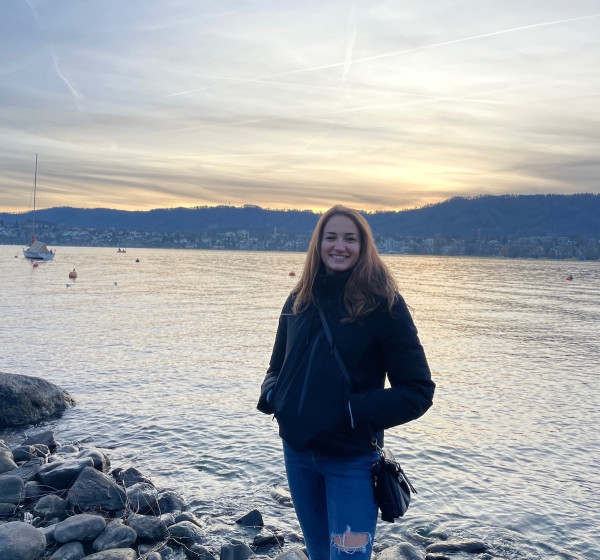Laura Mismetti
Interview by Nicola Nosengo, NCCR MARVEL on 24 February 2024.
Have you always been interested in science?
I always liked science, while subjects like history or literature never held much appeal. In my family, there are no scientists to guide me, so I had to forge my own path. However, it was quite evident for me that it would involve science. For example, when I was a child, I often invented games that had something to do with it. Instead of the typical doll play, I found myself engrossed in designing the ideal pram to carry as many dolls as possible. And I was always curious about why things happen the way they do. Then in high school I discovered chemistry, how atoms bond, and when I met the electromagnetic field, I knew that was my thing.

Laura Mismetti
How did you hear about the INSPIRE Potentials Program?
I was doing a semester project in Prof. Nicola Marzari’s laboratory, and both Marzari and Enrico Di Lucente, who was my supervisor, suggested that I applied for this fellowship. And also Ziga Casar, at the time PhD student in the LCM lab at EPFL who supervised me during another semester project, recommended me the same, supporting me during the application process.
What is the topic of your master’s project?
The title of the project is “Quantum phase classification with quantum convolutional neural networks”. I am using quantum machine learning models to reconstruct the phase diagram of the one-dimensional Fermi-Hubbard model. It is a spin model, described by a Hamiltonian which takes into account the ability of electrons to jump to other sites as well as the repulsion between two electrons at the same site. By varying these two parameters, the model can describe different phases, from the metallic one up to the most complicated quantum phases. Therefore, I prepared some quantum states with common techniques and used those states as a training set for a quantum machine learning algorithm. In particular, I used quantum convolutional neural networks, that are the quantum analogues of the classical ones. Essentially, they are quantum circuits with some parameters that I trained using the states prepared in the previous step, and in the end, I showed that it is possible to predict if a state belongs or not to a given phase. I’ve just defended my thesis, and I will continue working on the project for two more months.
Do you think women face specific challenges in the sciences?
It is for sure a complicated question. Probably the absence of role models in science can have a lot of influence, making it difficult for young women to think they can pursue such a path. Consequently, as a woman you always feel like you have more to prove. An example, that really surprised me, was that I got some discriminatory comments from young male researchers in the field because I had won a fellowship reserved for women – as if that meant I deserved less to be where I am. Personally, I have always been confident in my deserving place and accomplishments, but this is also thanks to my personal experience and the support of some wonderful people I met along the journey. Unfortunately, I know it is not always the case.
Any advice for young girls interested in science?
You must trust yourself and your gut, without being discouraged if things do not immediately work like you imagined, hold on and don’t be afraid of asking for help if you need it, usually people are happier to help than you think. As for skills, for me it was very important to receive excellent fundamentals in the bachelor and a broad-range training during the master, learning a little bit of everything instead of focusing only on one specific topic. I think that’s what you need when you are young, so that you can explore different fields and choose your specialization later. And you should learn as much coding as you can, different languages and approaches.
What are your plans for the future?
What I’ve understood, also thanks to various meetings I attended through MARVEL, such as the one in Davos last summer where I had the opportunity to talk to some senior scientists, is that in the long term I would prefer the industry. I see myself solving more concrete problems with quicker transition to real-life applications. Additionally, at the moment I don’t see myself in a teaching position. On the short term, I will do an internship to continue exploring different areas, but I am thinking about doing a PhD after, I see it as an important growth opportunity also towards a career in the industry.
